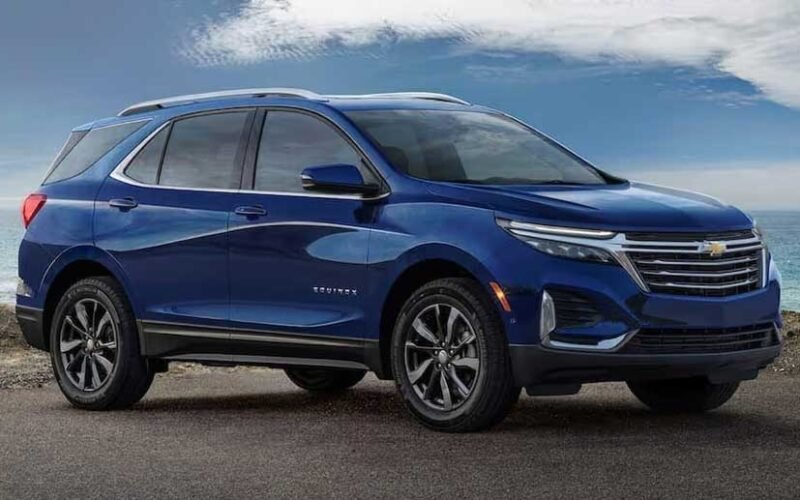When it’s time to drive home a new vehicle, one major decision stands in your way: should you buy or lease your next Chevrolet? This choice can significantly impact your finances, lifestyle, and long-term plans. Chevrolet has long been a trusted name in the automotive world, offering reliable models that appeal to a wide range of drivers—from family-friendly SUVs like the Traverse to rugged trucks like the Silverado. Whether you’re looking for performance, comfort, or fuel efficiency, there’s a Chevy model for you. If you’re shopping through a reputable dealership like OK Chevrolet, you’ll likely encounter both purchase and lease offers. But which route is right for you?
Let’s break down the pros, cons, and key considerations to help you make a confident and informed decision.
Understanding the Basics of Buying vs. Leasing
Before you dive into financial comparisons, it’s important to understand what buying and leasing actually mean. When you buy a car, you either pay in full or finance it with a loan. Once the loan is paid off, the vehicle is yours, free and clear. You own it outright and can keep it as long as you want.
In contrast, when you lease a car, you’re essentially renting it from the dealership for a set period—typically two to four years. You’ll make monthly payments based on the vehicle’s expected depreciation during that term. At the end of the lease, you return the vehicle unless you decide to purchase it.
Pros of Buying a Chevrolet
There are several compelling reasons to buy your next Chevrolet:
- Long-Term Investment: Once the loan is paid off, you own the car. This eliminates monthly payments and gives you long-term value.
- No Mileage Restrictions: Bought vehicles don’t come with mileage limits, so you can drive as much as you like without penalties.
- Customization: Want to add custom rims or a roof rack? When you own the car, you can modify it however you choose.
- Resale Value: You can sell the car at any time and keep the proceeds, potentially recovering part of your investment.
- Cheaper Over Time: Though monthly payments may be higher at first, buying can be more economical over the long term.
Pros of Leasing a Chevrolet
Leasing also has attractive benefits, especially for those who enjoy driving the latest models:
- Lower Monthly Payments: Lease payments are typically lower than loan payments, allowing you to afford a more expensive model or trim level.
- Latest Technology: Leasing makes it easier to switch vehicles every few years, ensuring you always have access to the newest safety features, infotainment systems, and design upgrades.
- Lower Repair Costs: Leased vehicles are usually under warranty for the duration of the lease, reducing out-of-pocket repair expenses.
- No Hassle at Trade-In: At the end of your lease, you simply return the car and pick a new one. There’s no need to negotiate trade-in value or private sales.
Cons of Buying a Chevrolet
While ownership has its perks, there are some downsides to buying:
- Higher Monthly Payments: Financing a purchase often involves higher monthly payments compared to leasing.
- Depreciation: New cars lose value quickly, and you absorb the full depreciation cost when you own the vehicle.
- Maintenance Costs: After the warranty expires, you’re responsible for all repair and maintenance costs.
- Long-Term Commitment: Selling a car that’s still under a loan can be complicated and may require you to pay off the balance first.
Cons of Leasing a Chevrolet
Leasing isn’t without its limitations, either:
- Mileage Limits: Leases typically come with mileage caps (e.g., 10,000–15,000 miles per year). Exceeding these limits can result in steep penalties.
- No Ownership: At the end of the lease, you must return the vehicle or buy it. Your monthly payments don’t build any equity.
- Wear and Tear Charges: You may be charged for excess wear and tear, scratches, dents, or interior damage.
- Long-Term Cost: Leasing continuously over many years may cost more than owning, as you’re perpetually making payments.
Consider Your Driving Habits
How and how much you drive plays a significant role in this decision. If you commute long distances or take frequent road trips, buying is usually the smarter option. High mileage can trigger lease penalties and diminish the benefits of leasing. However, if your driving is limited and predictable, leasing may work well.
How Long Do You Plan to Keep the Vehicle?
If you’re someone who keeps a car for a decade or longer, buying a Chevrolet is typically the more economical option. Once the loan is paid off, your only expenses are maintenance, insurance, and fuel.
On the other hand, if you like switching cars every few years and value having the latest features, leasing keeps you current without the hassle of selling or trading in an older vehicle.
Financial Considerations and Budget
When budgeting, it’s important to factor in more than just monthly payments. Consider:
- Down Payment: Buying usually requires a larger upfront payment than leasing.
- Insurance Costs: Leased cars often require higher insurance coverage, potentially increasing your monthly expenses.
- Long-Term Cost of Ownership: Buying a vehicle may lead to higher costs upfront but saves money in the long run once the loan is paid off.
- Credit Requirements: Leasing often requires excellent credit to qualify for the best deals, while auto loans may be more accessible for a broader range of credit profiles.
Tax Implications
In some states, leasing can offer tax benefits—especially if you’re using the vehicle for business purposes. You typically only pay tax on the portion of the vehicle you use (i.e., monthly lease payments), not the full value. In contrast, buying a car generally involves paying sales tax upfront on the full price.
Customization and Use
Are you planning to tow, customize, or heavily use your Chevrolet for business or recreation? If so, buying might be the better choice. Lease contracts often restrict the kinds of modifications you can make and penalize for heavy use.
What Models Are Best to Buy vs. Lease?
Certain Chevrolet models are more lease-friendly, while others offer better value when purchased. For example:
- Best to Lease: Chevrolet Bolt EUV, Malibu, and Trax often come with attractive lease deals and hold value well during the lease term.
- Best to Buy: Trucks like the Silverado or SUVs like the Tahoe and Suburban tend to retain value longer and are ideal for long-term ownership.
Conclusion
The choice between buying and leasing your next Chevrolet depends on your lifestyle, driving habits, and financial goals. If long-term value, ownership, and unlimited mileage are important to you, buying might be the right move. But if you prefer lower monthly payments, the latest technology, and driving a new car every few years, leasing offers an appealing alternative.
Whichever option you choose, be sure to work with a reputable dealership like OK Chevrolet, where knowledgeable staff can help you explore both routes and tailor a deal that fits your needs. Make your decision confidently, knowing you’ve weighed the pros and cons—and you’re driving off in a Chevrolet that suits your life perfectly.









